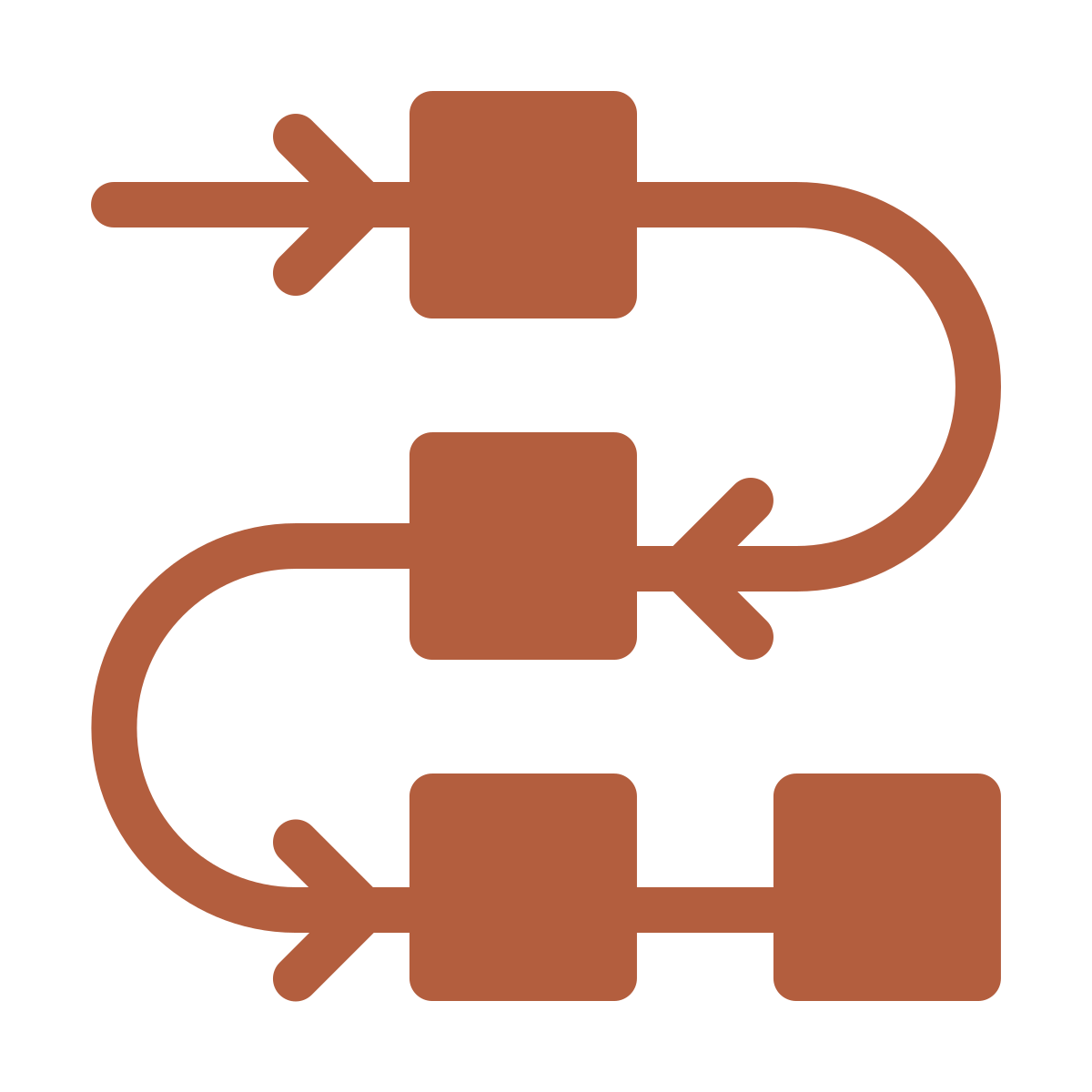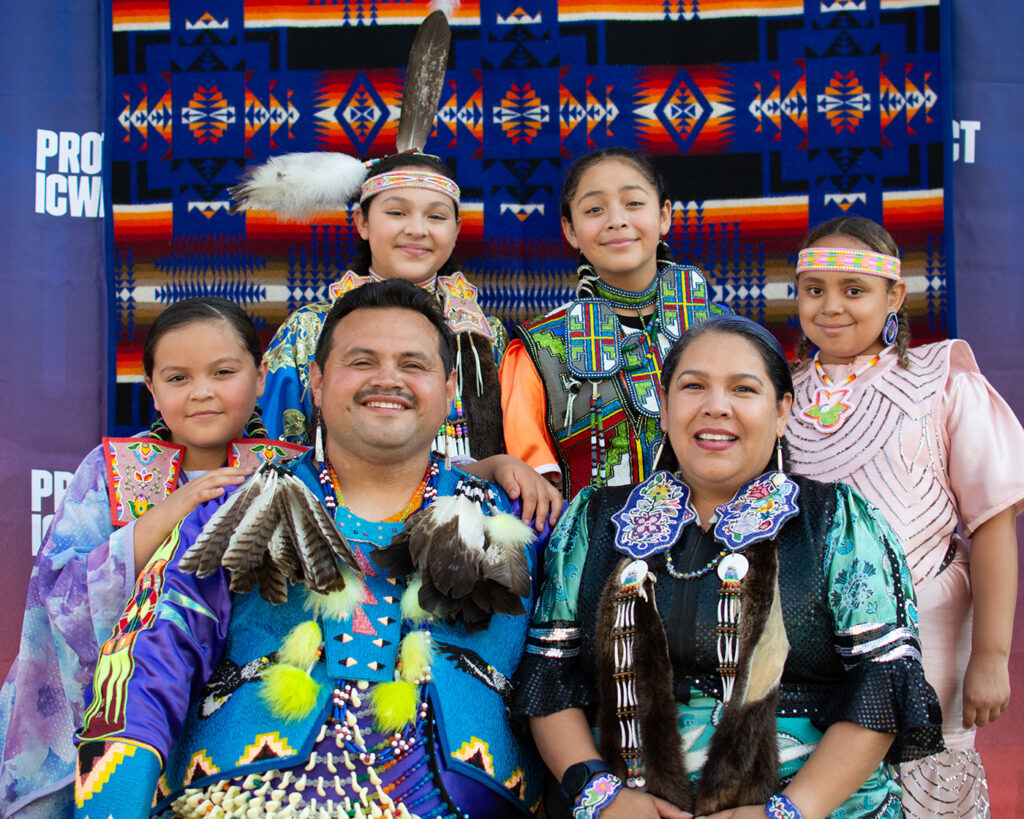Through our policy and advocacy work, we address systemic issues that arise in ICWA implementation and with other policies that impact Native children and families. Our over 35 years of experience in child welfare policy gives us critical insight and relationships needed to develop effective policy solutions to barriers that tribal nations and Native children and families face. Recently and overtime, our work has yielded some tremendous results.
Our Advocacy and Social Justice Values

We advocate for equitable access to resources and funding that are long-term, sustainable, and culturally responsive for Native children, families, and tribal nations.

We educate federal, state, and tribal policymakers.

We are willing to confront racism, bias, and cultural incompetence.

We are committed to compliance with the Indian Child Welfare Act (ICWA).

We are committed to win-win solutions that benefit tribal children, families, and tribal nations, including tribal-state and tribal-federal relations.

We promote effective governance in tribal child welfare services.

We advocate for the preservation of Native families.

We advocate for the preservation and use of tribal cultures and the protective factors they provide for the well-being of Native children and families.
Our Work with Partners
Federal Policy Resources
Indian Child Welfare Act of 1978, ICWA Regulations, and ICWA Guidelines
The Indian Child Welfare Act (ICWA) was enacted in 1978 in response to the mass forced removal of American Indian and Alaska Native children from their families and tribes. Studies revealed that large numbers of Native children were being separated from their parents, extended families, and communities by state child welfare and private adoption agencies. Estimates revealed that 25%–35% of all Native children had been removed; of these, 85% were placed in non-Native homes—oftentimes when fit and willing relatives or Native families were available.
Congressional testimony documented the devastating impact this had on Native children, families, and tribes. Congress’s intent in enacting ICWA was to “protect the best interests of Indian children and to promote the stability and security of Indian tribes and families” (25 U.S.C. § 1902).
ICWA contains minimum federal requirements that apply to state child custody proceedings involving an Indian child who is a member of or eligible for membership in a federally recognized tribe.
- ICWA Regulations. The first-ever comprehensive federal regulations addressing ICWA implementation for state courts and public and private agencies were published by the Bureau of Indian Affairs in June 2016. These regulations provide clarification of many of the key requirements under ICWA and are legally binding. NICWA and the Native American Rights Fund created the ICWA Regulations Summary to briefly describe key provisions of the regulations.
- ICWA Guidelines. The Bureau of Indian Affairs published revised guidelines in December 2016 entitled Guidelines for State Courts in Indian Child Custody Proceedings. These are not legally binding and were the first revisions since 1979. They provide the Bureau of Indian Affairs views on how to best implement various legal requirements in the law and regulations. NICWA created Summary of the 2016 ICWA Guidelines to provide practitioners with descriptions of key provisions.
Stephanie Tubbs Jones Child Welfare Services: Title IV-B, Subpart 1 of the Social Security Act
This program provides grants to states and eligible tribal nations for programs with the goal of keeping families together. The grant funds support preventive and supportive services so that, if possible, children will not have to be removed from their homes. If this is not possible, the funds can also be used to help children be safely reunified with their families and support other permanent placement options.
MaryLee Allen Promoting Safe and Stable Families: Title IV-B, Subpart 2 of the Social Security Act
The MaryLee Allen Promoting Safe and Stable Families (PSSF) program provides formula grants each year to states, territories and 300 tribes. The purpose of this program is to prevent child maltreatment and the unnecessary separation of children from their families, improve the quality of care and services to children and their families, and ensure permanency for children by reuniting them with their parents, or by promoting adoption or another permanent living arrangement. Funding may be used to develop, establish, or expand, and to operate coordinated programs of community-based family support services, family preservation services, family reunification services, and adoption promotion and support services. The program also funds state and tribal court improvement projects
Title IV-E Foster Care and Adoption Assistance Program
The Title IV-E Foster Care and Adoption Assistance Program reimburses services supporting out-of-home care for children until they are safely reunified, adopted, or placed in other permanent arrangements. Since 2008, tribal nations with approved plans can directly administer the program and receive funding. Starting in FY 2009, $3 million annually has been reserved for technical assistance and program development grants for tribes. Tribes may also partner with states to operate the program under agreement with a state Title IV-E agency.
Title IV-E Guardianship Assistance (GAP)
GAP is a formula grant that helps eligible tribes, tribal organizations, and tribal consortia who opt to provide guardianship assistance payments for the care of children by relatives who have assumed legal guardianship of eligible children. Unlike Title IV-E Foster Care and Adoption Assistance, the Title IV-E Guardianship Assistance Program is an optional program for states and tribes that operate the Title IV-E program. The program is authorized under Title IV-E of the Social Security Act, and funding is contingent upon an approved Title IV-E plan to administer or supervise the program’s administration. Like Title IV-E Foster Care and Adoption Assistance, tribes may apply to operate the GAP program directly through the federal government or through an agreement with their state if the state has opted to administer this program.
Title IV-E Family First Prevention Services
This optional program reimburses states and eligible tribes for services aimed at preventing the removal of children at risk of out-of-home placement and supporting reunification after removal. Reimbursable services include mental health and substance abuse prevention and treatment, in-home skilled-base parenting programs, individual and family counseling. and evidence-based kinship navigator programs. Tribes can operate this program directly through the Department of Health and Human Services or through agreements with states under approved plans.
Compilation of Title IV-B and IV-E of the Social Security Act
A copy of Title IV-B and Title IV-E of the Social Security Act, which outlines program and other legal requirements for tribes and states operating these programs.
Children’s Bureau Child Welfare Policy Manual
The Child Welfare Policy Manual contains policy questions and answers applicable to federal child welfare programs overseen by the Children’s Bureau. This includes federal programs that tribal nations and tribal organizations are eligible to operate, such Title IV-B and Title IV-E of the Social Security Act (see above). The Child Welfare Policy Manual also provides references to various program policy issuances from the Children’s Bureau.
Indian Child Protection and Family Violence Prevention Act (P.L. 101-630)
The Indian Child Protection and Family Violence Prevention Act, enacted in 1990, establishes requirements for reporting and investigating child abuse on tribal lands, involving tribal, federal, and local authorities. It mandates criminal background checks for tribal and federal staff working with Native children and for tribally licensed foster homes. The law also funds two grant programs for tribes: one for treatment services for child abuse and family violence victims, and another for prevention of child abuse, neglect, and family violence.


